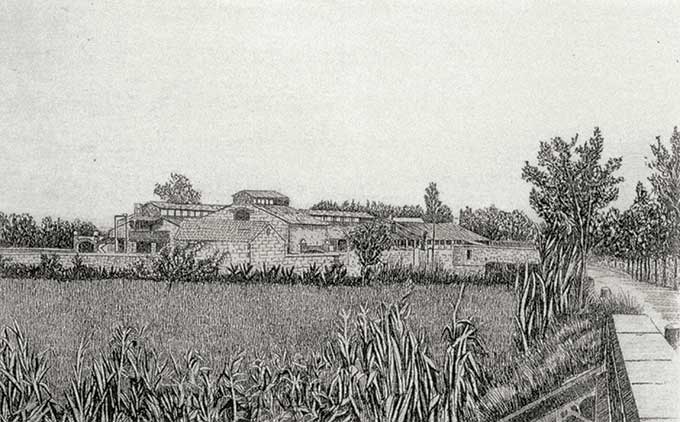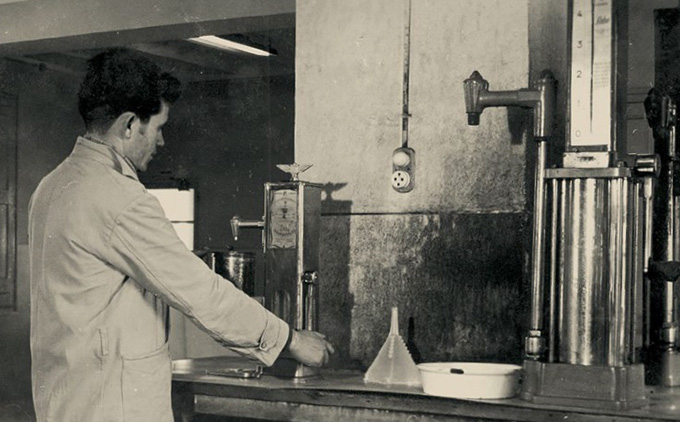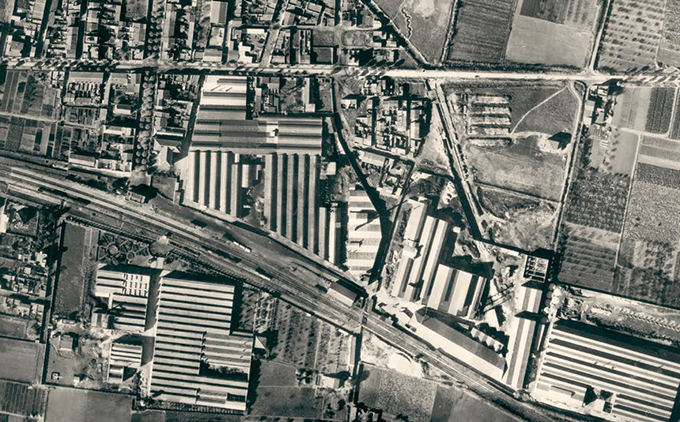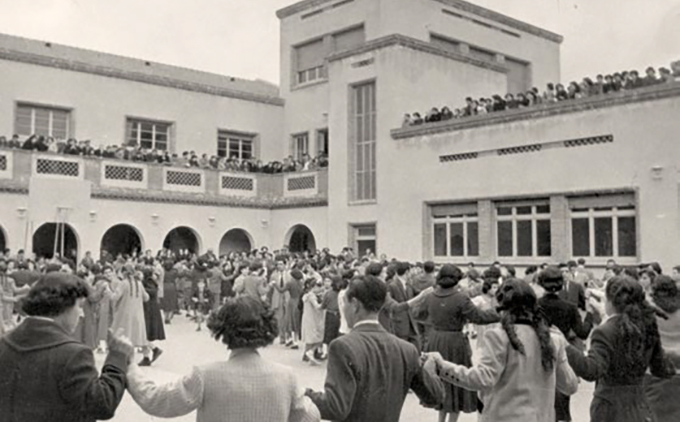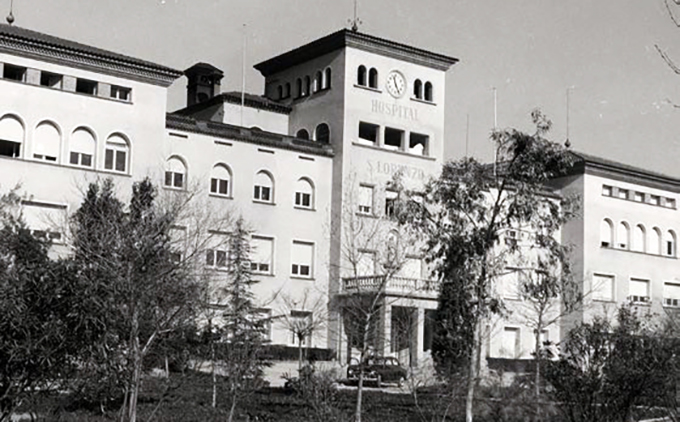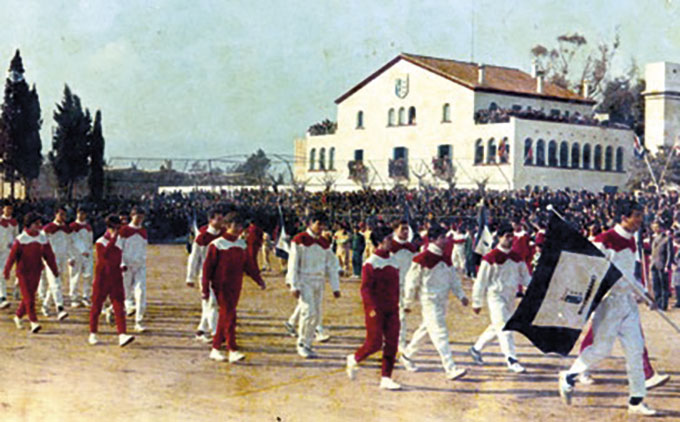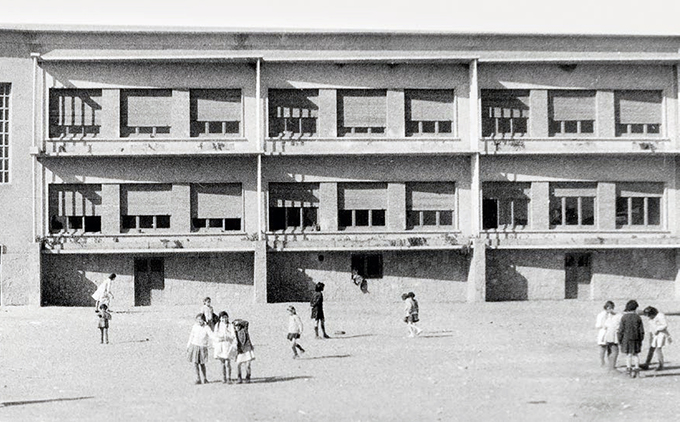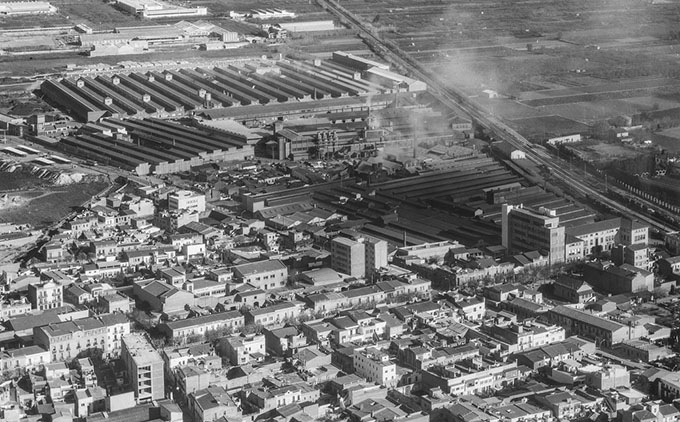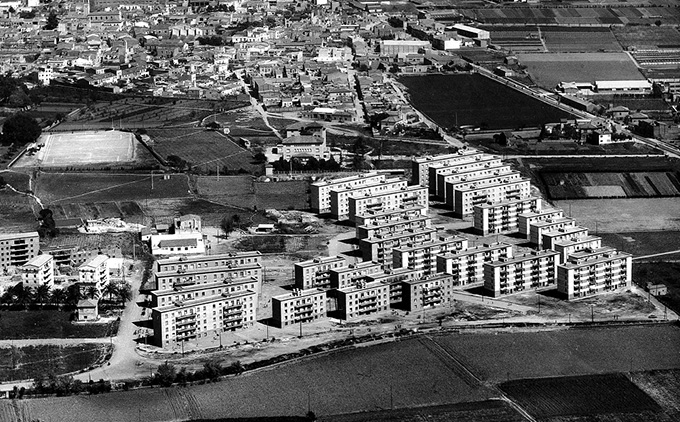Sustainable development
A story of shared success
The Roca Group renews its commitment to Gavà-Viladecans, where the company was born, launching an urban transformation project that blends the traditional industrial plots with a growing and diverse city.
The Espai Roca project has been developed jointly with town halls to demolish walls around industrial facilities. The new space will house the Group’s corporate headquarters, a completely refurbished production plant and a sustainable construction business estate, in addition to new housing, services and green spaces for the whole town to enjoy.
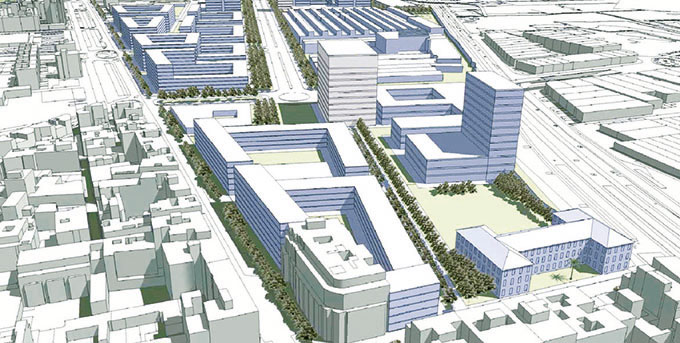
32.6 ha
total surface area
40%
social housing
28%
green areas
HUMAN RESOURCES
High-performance and resilient team
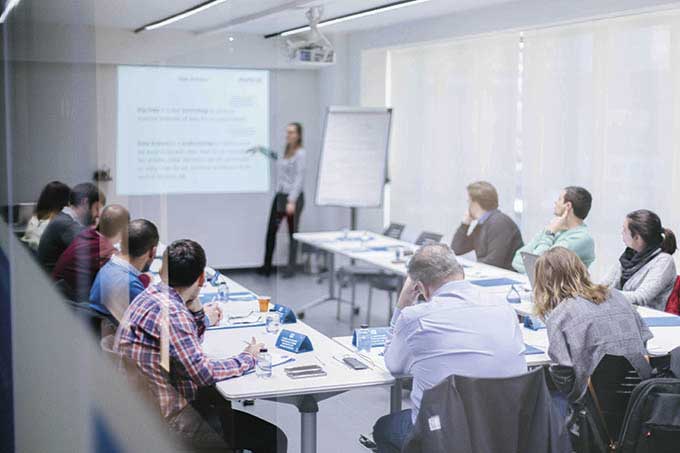
In 2018 the Roca Group reached the figure of 24,245 employees, the largest in its history, distributed almost equally among its four geographical business regions. The organization advocates a talent management model based primarily on respect and compliance with corporate principles and values, training opportunities for professional and personal development and promotion from within. These values are considered essential to ensuring a highly qualified team equipped to operate in our current complex and ever-changing environment.
The unit responsible for training professionals at all levels is the Roca Corporate University (RCU), which combines classroom and online education for training in skills and specific technical expertise. The communication of corporate principles and values—especially complex in an organization that brings together professionals from very different cultures—has received a great boost in 2018 thanks to the use of Mariscal’s “neo-duck” mascot as the Group’s symbol.
2018 TRAINING PROGRAMS
1,020
programs
35,910
participants
229,430
hours
9.1/10
satisfaction
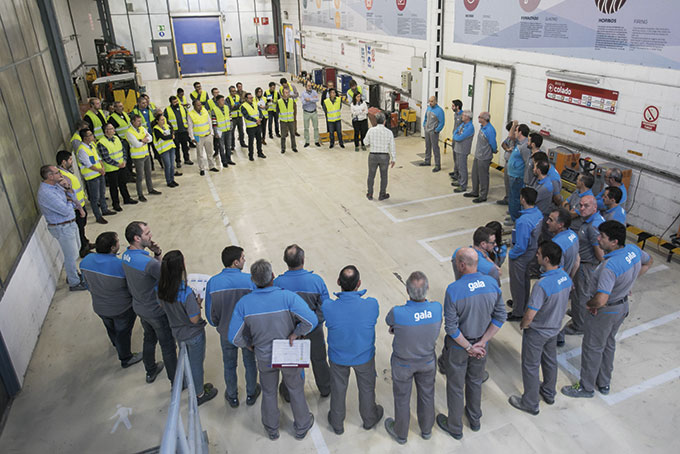
Today’s market requires adaptability and flexibility from professionals in every specialty, so RCU’s offering focuses on two parallel strategies: extending its program on skills and work processes to new teams and developing new know-how or specific programs for particular needs. As part of this first strategy, RCU took part in the 13th edition of International Methods and Processes Meeting in Burgos, developed the orientation/results and initiative/proactivity skills under the RPM Competences program, and launched new motivation and leadership programs in Brazil (faucet unit) and Barcelona (furniture, accessories and screens), bringing the number of active programs in this field to 33.
RCU’s strategy for developing new know-how and specific programs included the launch of a program on emotional intelligence, initially focused on increasing awareness of this concept and its application in business, and designing a training module for managers in Latin America aimed at providing them with resources to properly manage the complex political and economic situation in the region.
Two online platforms were also developed to raise awareness about and ensure compliance with regulations which are particularly relevant for the organization: the European Data Protection Regulation (EU 2016/679) and, internally, the Roca Group Corporate Standards and Business Code of Ethics. Likewise, 2018 witnessed the roll-out of the communication program about values, culture, and ethics/operational standards in the latest companies acquired by the Group in Turkey and Mexico.
The Roca Group advocates a talent management model based primarily on respect and compliance with corporate principles and values, aiming to consolidate a proprietary and distinctive working style and methodology around the world.
RCU, WORLD TRAINING UNIT
Founded in 2006, the Roca Corporate University has established itself as the unit for training all Group employees. All programs carried out worldwide are offered under the RCU umbrella. The contents of these programs have gradually become more diverse, moving from a technical focus at first to later include training in skills, organization and motivation. Course participants rank them 9 out of 10 and express their great appreciation for the practical knowledge acquired when it comes to improving their daily jobs.
JAVIER MARISCAL’S “NEO-DUCK”—SYMBOL OF THE ROCA GROUP
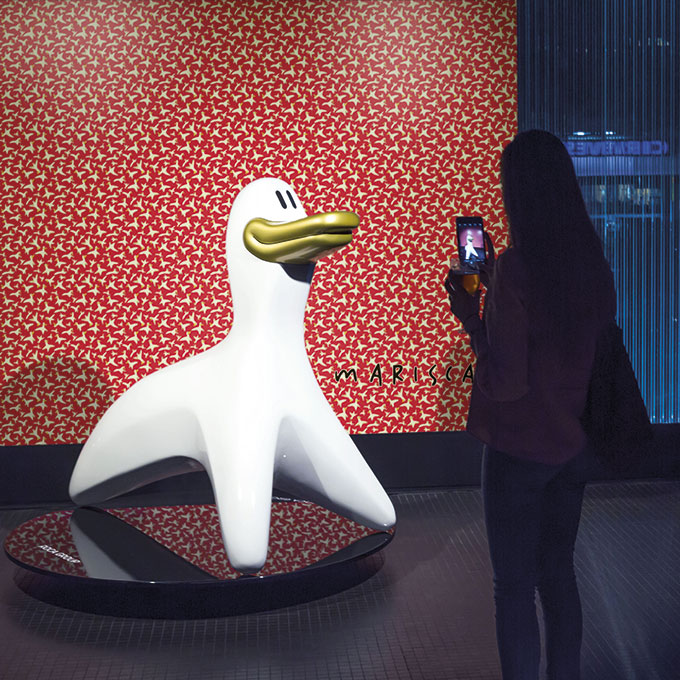
The Group has adopted the “NEO-DUCK” figure—designed by renowned Spanish designer Javier Mariscal—as a symbol of the company’s principles and values.
The mascot is inspired by traditional rubber ducks found in children’s baths worldwide and aims to reflect both the geographic origins of the Group—the city of Barcelona, its Mediterranean character and its relationship with design—and the organization’s work style: approachable, empathetic, inclusive, with a global vision, able to inspire trust, etc.
Presented on the occasion of Roca’s centenary in 2017, in 2018 the “neo-duck” has been in the limelight of all internal communication efforts by the Group globally, with the aim of enhancing awareness of the company’s values and modus operandi among its more than 24,000 employees. The mascot is also featured in new media such as the Waterdrops newsletter, including information of interest to managers, giant reproductions in corporate buildings and merchandising elements, among many others.
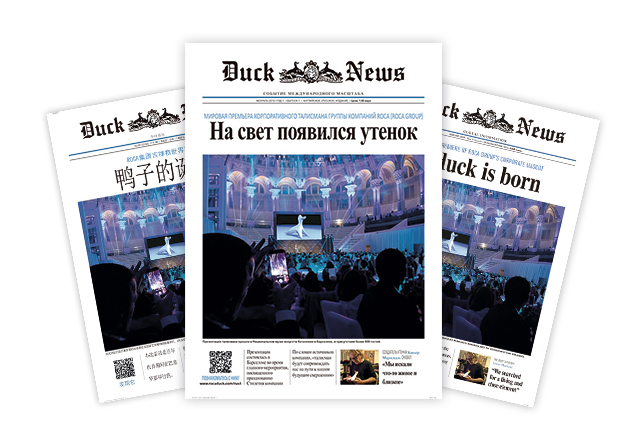
ENVIRONMENTAL MANAGEMENT
Environmental friendliness
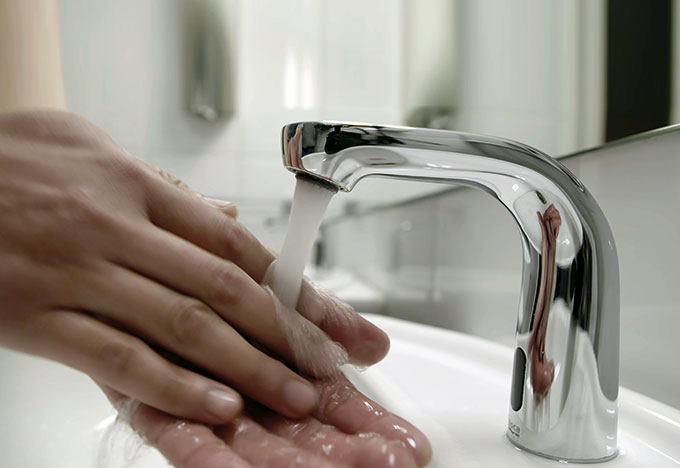
According to its Quality and Environment Policy, the Roca Group works keenly to improve quality and environmental performance, both in aspects involving production processes and in product and service innovation and development. The Corporate Quality Management department is tasked with environmental monitoring of the organization’s business worldwide, ensuring compliance with corporate standards in all production plants and workplaces. It is also responsible for auditing the processes and facilities of new plants added to the industrial network.
The environmental impact of products is taken into account throughout the process of developing new solutions for the bathroom, by analyzing the impact throughout a product’s life cycle, from design and production to daily use. This policy is the foundation for the Group’s international leadership in research and development into solutions for saving water and energy, ever since it began to reduce toilet tank water usage in the 1960s.
MAIN SUSTAINABILITY INDICATORS
CO2 emissions
-2.94%
of tCO2
Natural resources
-10.85%
water consumption*
Waste
-8.60%
tons of waste*
(Performance compared to 2017 *Data from the Gavà-Viladecans plant)
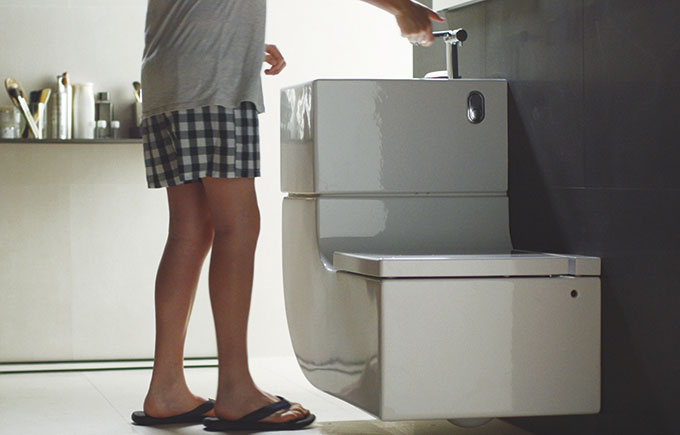
Constantly updated environmental regulations and the development of products with greater technological elements require an ongoing renewal of our knowledge to ensure legal compliance and up-to-date internal environmental standards. In 2018 we reviewed European regulations concerning electrical and electronic equipment waste, the circular economy and the EU Emissions Trading Scheme. As the world leader in sanitaryware production, we work with international working groups on the impact of the bathroom space sector. In 2018, we worked specifically with the European Ceramic Industry Association (Cerame-Unie) on a qualitative analysis of risks related to greenhouse gas emissions, which affect the industry as a whole.
The Group has rolled out best environmental practices throughout the organization, and in this context has launched a project to analyze energy consumption in the Group’s nonindustrial centers. Together with the We Are Water Foundation, Roca Corporate University has developed an internal environmental awareness program called “Let’s Make a Deal” aimed at efficient water consumption and at promoting the exchange of experiences and best practices.
At the product level, water savings solutions have gradually affected all ranges. The Group also unveiled the sanitaryware environmental declaration, which calculates the impact of this category based on the material and energy resources used for manufacturing, and the waste generated. During 2018, headway was made in studying the environmental impact of faucet production.
The Roca Group works keenly to improve quality and environmental performance, both in aspects involving production processes and in product and service innovation and development.
SOLUTIONS TO HELP US SAVE WATER AND ENERGY
The new products launched by Roca and Laufen brands in 2018 integrate effective solutions for water and energy savings in everyday use. For example, the use of new ceramic materials (Fineceramic®) in the sanitaryware collections significantly reduces waste generated in production, dual flush (4.5 liters/3 liters) in all toilets, Cold Start functionality in bathroom and kitchen faucet collections, and the thermal resistance of materials such as Surfex®, ensuring greater energy efficiency.
WE ARE WATER FOUNDATION
Fostering a fair and equitable water culture
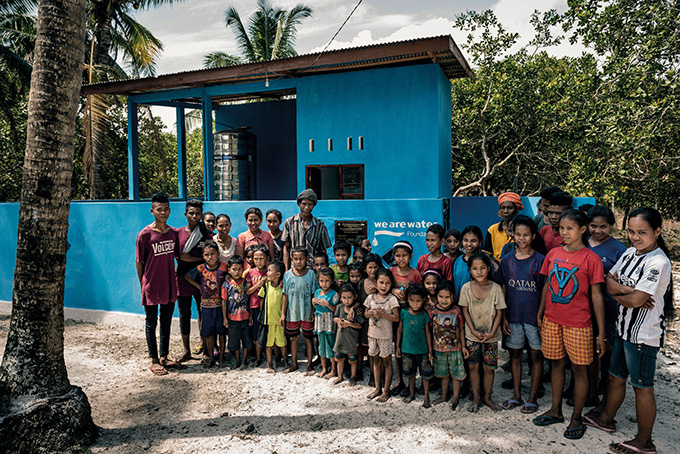

The We Are Water Foundation was established in 2010 by Roca with a two-fold objective. On the one hand, it seeks to cultivate new approaches to water that ensure fair development and sustainable management of the world’s water resources, and on the other, it also develops all kinds of actions aimed at mitigating the detrimental effects of a lack of water resources while improving access to basic sanitation. These two issues align well with the UN’s Sustainable Development Goals (2015-2030) accepted as a roadmap by governments and private institutions worldwide.
The Foundation has contributed to increasing global awareness of this issue through its own working methodology and strategy, combining the launch of high-impact advertising actions and gaining wide-ranging expertise on specific issues related to water management and sanitation. This unique approach has earned it recognition and the opportunity to collaborate with the most prestigious international institutions.
COLLABORATIVE PROJECTS (2011-2018)
50
projects
24
countries
675,000
beneficiaries
The new initiatives launched in 2018 include the international release of “The Hidden Life of Water” campaign, which underscores the importance of water in the social and economic development of communities around the world. The campaign was launched on World Water Day, with roundtables and awareness actions in 14 countries. Other relevant outreach activities include a new edition of the “Smartwater/Smartcities” conference (which discusses water issues in cities from the perspective of architecture), debates organized during the World Toilet Day under the slogan "When Nature Calls” and 34 “Aquanauts. Water Protectors” training workshops, involving 800 children and teenagers.
The 2018 We Art Water Film Festival short film competition gave its fourth edition awards, which attracted a record-breaking 2,400 participants from 127 countries. Another initiative with tremendous popular impact has been the first Global 6K For Water race held in Spain, which was organized jointly with the NGO World Vision, and hosted more than 3,000 runners.
Last, one of the new cooperative projects undertaken in 2018 was participation in initiatives to improve access to water and sanitation infrastructure in Burkina Faso, Mauritania, Uganda, Lebanon and Indonesia, where emergency relief was also provided to people affected by the two earthquakes that hit the country. In these projects, the Foundation has collaborated with prestigious entities such as UNICEF, Save the Children, Action Against Hunger and the NGO World Vision.
The We Are Water Foundation has forged its own style of building awareness and sharing knowledge about the problems of water and sanitation in the world. This unique approach has earned it recognition and the opportunity to collaborate with the major international institutions.
COLLABORATION WITH THE UNITED NATIONS
In 2018, the Foundation also stepped up its cooperation with the United Nations to work together for greater international awareness of the water problem. After an initial meeting in Barcelona with the UN’s Under-Secretary-General for Global Communications, Alison Smale (pictured right), Foundation members traveled to New York for meetings with communication managers at UN Water, the Department of Economic and Social Affairs (DESA) and the Regional Information Center (UNRIC).
